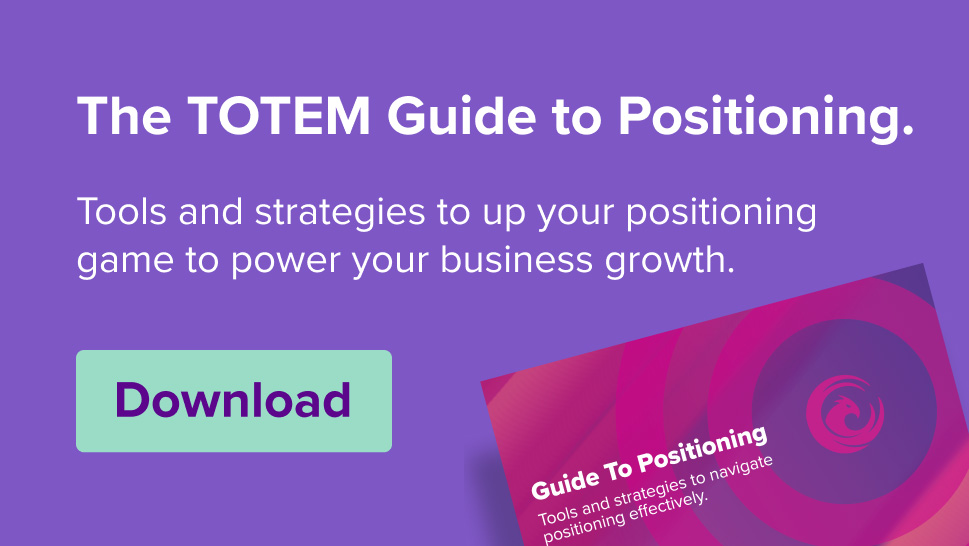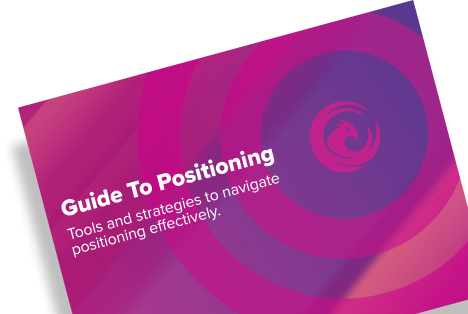
First things first: what is branding?
At its core, branding is the art and science of shaping how people perceive your business.
It’s not just about a cool logo or catchy slogan—it’s about creating a cohesive identity that resonates with your target audience and sets you apart from the competition.
A branding agency is your partner in this journey. Unlike marketing or advertising agencies that focus on promoting products or services, a branding agency helps you define and communicate your company’s essence. They’re the architects of your business’s personality, values, and visual identity.
Brand Strategy Development: The Foundation of Your Identity
At the heart of any branding effort is strategy. A branding agency will work with you to –
1. Define your brand positioning: What makes you unique? Why should customers choose you over competitors? This is your value proposition, and it’s crucial to get it right.
2. Craft your brand messaging: Ever struggled to explain what your business does in a clear, compelling way? A branding agency will help you nail your messaging, ensuring it’s consistent and resonates with your audience.
3. Design your brand identity: This is where the visual magic happens. Your logo is just the beginning— a branding agency will develop a complete visual language for your brand, including colour schemes, typography, and other design elements that bring your brand to life.
4. Create brand guidelines: Think of this as your brand’s rulebook. It ensures everyone in your organisation (and outside it) uses your brand consistently, maintaining its integrity across all touchpoints.
5. Name your brand: If you’re starting from scratch or rebranding, a branding agency can guide you through the naming process. We’ll help you brainstorm, research, and finalise a name that’s not just catchy, but also available as a trademark and domain name.
6. Tell your brand story: Every great brand has a compelling story. A branding agency will help you craft a narrative that connects with your audience on an emotional level, going beyond just products and services.
Specialised services, taking your brand to the next level
1. Rebranding: Sometimes, a brand needs a refresh. Whether it’s due to a change in business direction, a merger, or simply keeping up with the times, a branding agency can guide you through the rebranding process.
2. Brand audits: How does your current brand stack up? A branding agency can assess your brand’s strengths and weaknesses, providing valuable insights for improvement.
3. Packaging design: In retail, your packaging is often the first thing customers see. A branding agency can ensure your packaging not only looks great but also communicates your brand effectively.
4. Digital branding: In our digital-first world, your brand needs to shine online. From your website to social media, a branding agency ensures your digital presence is on-point and consistent.
Why Work with a Branding Agency?
You might be thinking, “Can’t I just do this myself?” Sure, you could try. But here’s why partnering with a branding agency like TOTEM is a smart move.
1. Expertise and experience: Branding agencies live and breathe brands. We bring specialised knowledge and years of experience to the table.
2. Fresh perspective: When you’re too close to your business, it’s hard to see the forest for the trees. An external agency can offer new insights and ideas you might never have considered.
3. Consistency across touchpoints: A cohesive brand experience is crucial. A branding agency ensures your brand is consistent whether a customer encounters you online, in-store, or through packaging.
The Impact of Branding on Business Success
Investing in branding isn’t just about looking good—it’s about boosting your bottom line.
1. Brand equity: A strong brand increases your company’s value. Think about brands like Apple or Nike—their brand alone is worth billions.
2. Customer loyalty: When customers connect with your brand, they’re more likely to stick around and become advocates.
3. Competitive advantage: In a sea of similar products or services, a strong brand helps you stand out and command premium prices.

Branding vs. marketing: distinct purposes
While branding and marketing are often mentioned in the same breath, they serve distinct purposes in the business world. Think of branding as the foundation upon which marketing efforts are built.
Branding is the core of your business identity
As we saw, branding is all about defining who you are as a company. It’s the process of creating and establishing a unique identity that sets you apart in the marketplace. Branding is largely internal work that shapes how you present yourself to the world. It’s about creating a cohesive identity that resonates with your target audience and remains consistent across all touchpoints.
Marketing promotes your brand to the world
On the other hand, marketing is how you communicate your brand to the world. It’s the tactics and strategies you use to promote your products or services based on the brand identity you’ve established. Marketing includes:
1. Advertising campaigns
2. Social media strategies
3. Content marketing
4. Email marketing
5. Public relations efforts
6. Sales promotions
Marketing is more external and action-oriented. It’s about getting your brand in front of the right people at the right time and convincing them to take action, whether that’s making a purchase, signing up for a newsletter, or engaging with your content.
It’s a symbiotic relationship
While distinct, branding and marketing are deeply intertwined. Your branding informs your marketing efforts, ensuring that all promotional activities align with your core identity. For example:
• If your brand identity is sophisticated and premium, your marketing materials should reflect this through high-quality visuals and refined messaging.
• If your brand voice is quirky and fun, your social media marketing should incorporate humour and playfulness.
Think of it this way: branding is the promise you make to your customers, while marketing is how you deliver that promise and persuade people to engage with your brand.
And the distinction matters
Understanding the difference between branding and marketing is crucial for several reasons:
Branding requires a long-term, strategic approach focused on building lasting perceptions. Marketing often involves shorter-term, tactical efforts to drive specific actions.
The success of branding is typically measured through metrics like brand awareness, brand equity, and customer loyalty. Marketing success is often measured through more immediate metrics like sales, leads generated, or click-through rates.
While both require investment, branding efforts often involve more upfront costs but provide long-term returns. Marketing costs are often more ongoing and tied to specific campaigns or initiatives.
A strong brand provides a consistent foundation for all marketing efforts, ensuring cohesion across various campaigns and channels.
While your core brand should remain relatively stable, your marketing efforts can be more flexible, adapting to current trends, seasons, or specific target audiences.
In practice branding and marketing work together
Imagine a sustainable clothing brand. Their branding might focus on environmental responsibility, quality craftsmanship, and minimalist design. This brand identity would then inform all their marketing efforts:
• Their content marketing might include blog posts about sustainable fashion and the environmental impact of clothing production.
• Their social media strategy could showcase behind-the-scenes glimpses of their eco-friendly manufacturing process.
• Their email marketing might highlight the durability of their products, encouraging customers to buy less but buy better.
In this way, the brand’s core identity (branding) guides and shapes all their promotional efforts (marketing).
While branding and marketing are distinct concepts, they work hand in hand to create a powerful presence in the marketplace. A strong brand provides the foundation and direction for effective marketing, while smart marketing brings your brand to life and connects it with your target audience. Understanding this relationship is key to building a successful, cohesive business strategy.

Logo vs. brand identity, unravelling the misconception
Your logo is important, but it’s just one part of your brand. Your brand encompasses everything from your values to your customer experience. One of the most common misconceptions in the business world is equating a logo with a brand. While a logo is indeed a crucial element of your brand identity, it’s just the tip of the iceberg. Let’s explore this further:
The logo design – a visual shorthand
A logo is a visual symbol that represents your company. It’s the shorthand that people use to identify your business at a glance. Think of the golden arches of McDonald’s, the swoosh of Nike, or the bitten apple of, well, Apple. These logos are instantly recognisable and carry a wealth of associations.
Your logo is important because:
1. It’s often the first thing people notice about your brand.
2. It helps create visual consistency across different platforms and materials.
3. It can communicate key aspects of your brand personality (e.g., playful, professional, innovative).
So, your logo alone isn’t your brand. It’s a part of your visual identity, which in turn is just one aspect of your overall brand.
The difference between a logo and brand identity
Your brand, on the other hand, is the sum total of all the experiences, perceptions, and feelings that people have about your business. It’s a much broader and more complex concept as we saw above.
Understanding that your brand is more than just your logo is crucial for several reasons:
1. When you realise your brand encompasses all these elements, you can develop a more comprehensive and effective brand strategy.
2. Your brand should be consistent across all touchpoints. If you focus only on your logo, you might neglect other important aspects of the customer experience.
3. While a logo can evoke emotions, it’s your overall brand that creates deep, lasting connections with your audience.
4. The value of your brand goes far beyond your visual identity. It’s built through consistent experiences, quality products or services, and fulfilled promises.
5. Your logo might remain relatively constant, but other aspects of your brand can evolve to meet changing market conditions or customer needs.
The logo-brand relationship brings it all together
While your logo isn’t your entire brand, it does play a crucial role. Your logo should be a visual distillation of your brand essence. It should reflect your brand personality, values, and positioning.
While a great logo is important, it’s the totality of your brand that will create lasting impressions and loyal customers. Your logo is the entry point, but your brand is the entire house – make sure it’s a place where your customers want to stay.
Why branding matters: looking to the future
In an increasingly digital and globalised world, branding is more important than ever. It’s not just about standing out—it’s about creating meaningful connections with your audience. As we look to the future, we see branding becoming even more personalised and experiential, with brands needing to be more authentic and purpose-driven than ever before.
Ready to take your brand to the next level? Don’t go it alone. TOTEM can be your guide and partner in creating a brand that truly resonates with your audience and drives your business forward. After all, your brand is your business’s most valuable asset—isn’t it time you gave it the attention it deserves?
TOTEM: Guide to positioning
This simple guide is designed to equip you with tools and strategies to navigate positioning effectively. Whether you’re new to the concept or seeking to refine your existing strategy, this will serve as your compass in the journey toward a strong positioning and a powerful brand identity.



